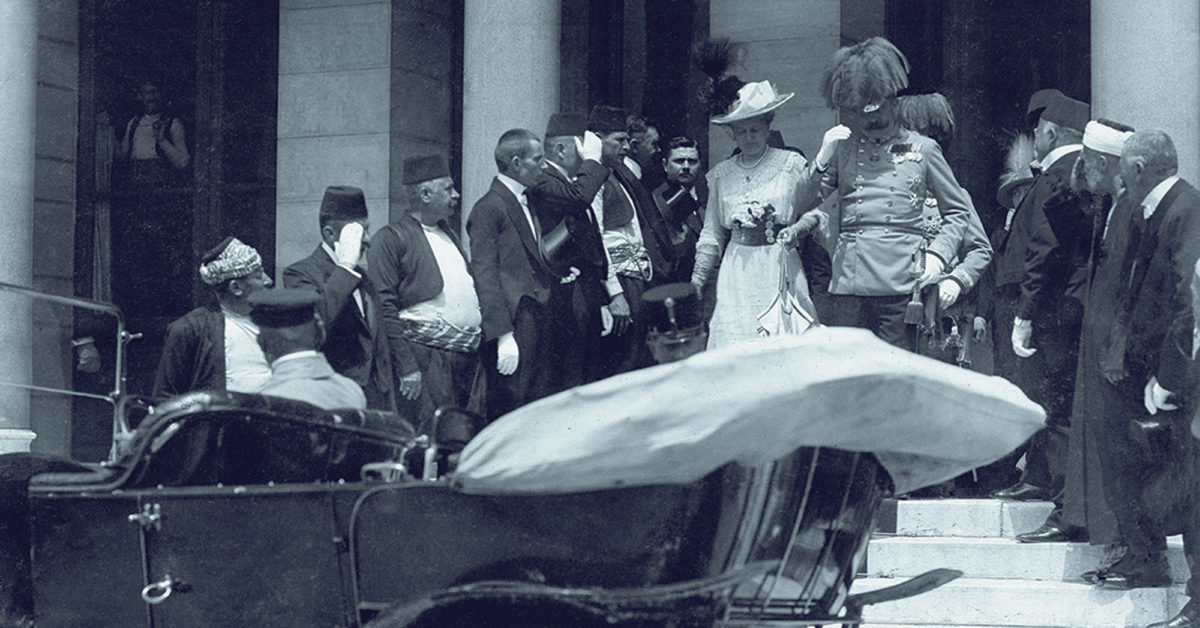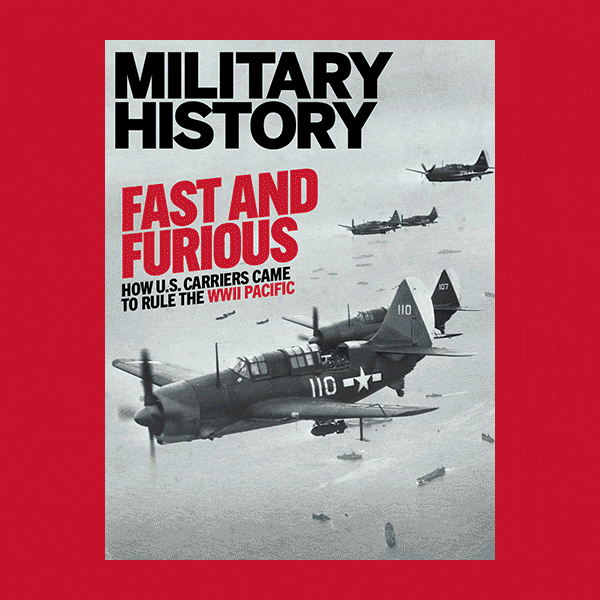Write us!
Feel the need to sound off? Fire an email to us at
militaryhistory@
historynet.com
Please include your name and hometown
‘OOPS’ WAR
[Re. “The ‘Oops’ War,” by Daniel McEwen, March 2022] The article certainly does not downplay the enormous cost of World War I, but the title struck a nerve with me. From what I’ve read, the interlocking set of alliances German Chancellor Otto von Bismarck had set up made the war inevitable once the assassination of Archduke Franz Ferdinand lit the fuse. Without Bismarck at the helm, no one could control the series of events that drew the major powers into war. I would suggest that rather than referring to World War I as an “unfortunate accident,” one might better characterize it as an unintended war.
Bill Knowlton
Colorado Springs, Colo.
JOE GALLOWAY
Thanks for that fine memorial on the death of Joe Galloway [News, March 2022]. Joe was fearless and always up front. He was honest in his depiction of the soldiers’ condition in battle and felt honored to relate the stories of their selfless heroism in combat. I thought of him as the Ernie Pyle of the Vietnam War.
But Joe and I differed on the issue of Vietnam. He believed the war was unwinnable, taking the horribly wrong Walter Cronkite narrative as gospel.
I prefer to follow North Vietnamese army Gen. Bùi Tín in his version of ground truth—that the 1968 Tet Offensive was a monumental mistake by North Vietnam any way one measures it (with military, political or psychological yardsticks) and that its losses were unacceptable, including destruction of the Viet Cong, the shattering of any offensive capability on the part of the NVA for four years and, most important, political turmoil in Hanoi.
In a postwar interview with The Wall Street Journal Bùi contended the United States lost the war because it failed to follow up on North Vietnam’s defeat in the Tet Offensive.
However, Galloway’s position on the war takes nothing away from his first-class service as the GIs’ reporter in Vietnam. He will be remembered by those with him at the point of the bayonet.
Col. Wayne Long
U.S. Army (Ret.)
Haverford, Pa.
YANK MAGAZINE
I enjoyed “Generation Yank,” by Peter Zablocki [January 2022]. However, I was surprised to find no mention of Cpl. Robert E. Krell, the Yank correspondent killed after jumping across the Rhine during Operation Varsity. Yank honored him with an obituary in its May 4, 1945, issue.
Krell earned his jump wings at Fort Benning, Ga., where he covered sports for the base newspaper, The Bayonet. Among the teams he covered was the parachute school’s basketball squad, whose top player would become the nation’s top collegiate scorer for the 1943–44 season. Stanley “Whitey” von Nieda had been a standout forward at Penn State. Krell wrote numerous articles about Whitey’s outstanding play and nicknamed him the “Blond Bullet.” By season’s end Von Nieda had set a national record of 1,066 points scored in 44 games.
At season’s end Whitey transferred to Camp Mackall, N.C., where he was assigned to the 517th Airborne Signal Company of the 17th Airborne Division. Krell had established a personal relationship with Von Nieda, so when assigned by Yank to cover the “Talon Division’s” jump across the Rhine, he looked up the former basketball star. In fact, they spent the night before the jump together, trading dark humor jibes with each other as to what might happen if they were to be captured—Krell because of his Jewish background, and Whitey because of his aristocratic German surname. No doubt Krell wanted to determine if his friend in the division commo shed (Whitey was a T-4 sergeant communications center clerk supporting the 17th’s command staff) could help him get dispatches back to the publisher.
On March 24, 1945, Krell jumped as the last man in the lead aircraft of the 507th Parachute Infantry Regiment. However, the lead element’s aircraft dropped their paratroopers some 2 miles off course. It was in this confused situation that Krell was killed by small-arms fire. Shortly after landing Krell had somehow managed to knock out an article describing the base camp in France prior to boarding. While the article failed to make the regular weekly issue of Yank, it did appear in the postwar anthology Yank: The GI Story of the War.
Today Whitey Von Nieda, 99, is the oldest living alum of the National Basketball Association and of the 17th Airborne. Bob Krell’s body was repatriated in 1949 and laid to rest at Mount Carmel Cemetery in Glendale, N.Y. Krell’s tombstone memorializes his service with the 17th.
Col. Thomas C. Fosnacht
U.S. Army Reserve (Ret.)
Historian, American Legion Post 386
Hershey, Pa.






